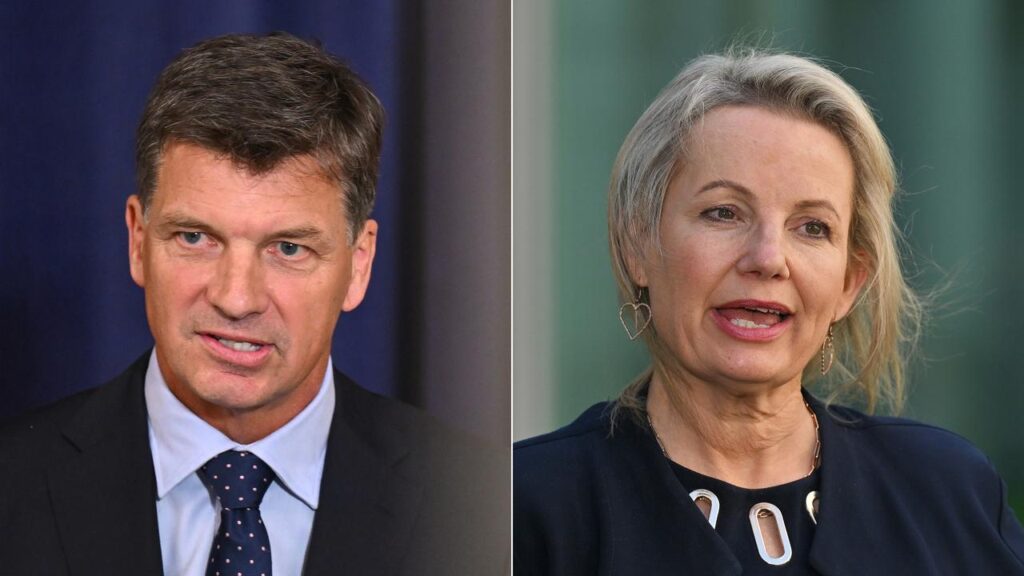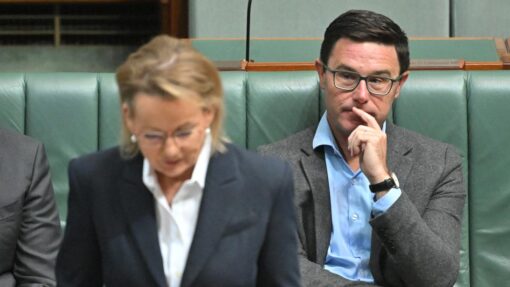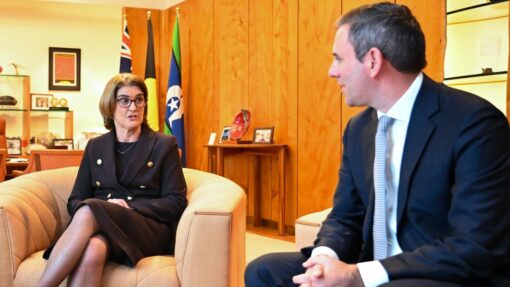Liberals’ first female leader promises strong policies
Dominic Giannini |

The federal Liberals’ first female leader has pledged unity as she works to rebuild the party after a blistering electoral defeat.
Sussan Ley, the former Liberal deputy under Peter Dutton, defeated former shadow treasurer Angus Taylor 29 votes to 25 in a party room ballot of 54 members on Tuesday in Canberra.
Hinting at where the party would focus after losing ground at the election, Ms Ley used her first address as leader to reflect on her past as a migrant, businesswoman and regional representative.
“I’m positive about what lies ahead,” she told reporters following her election.
Coalition MPs have urged more free-flowing discussion to reach policy decisions, arguing a premium on unity under Mr Dutton stifled debate.
“I committed to my colleagues that there would be no captain’s calls from anywhere by me,” Ms Ley said.
The writing appeared to be on the wall for Mr Taylor when he tried to enter the party room through a locked door before having to detour before the vote by MPs and senators.
Mr Taylor congratulated Ms Ley, saying her leadership was a milestone as he joined a chorus of Liberal MPs calling for unity during the party’s rebuild.

“Together we will work to earn back the trust of Australians,” he said.
The party was already making changes by electing its first female leader, which was “a very important signal to the Australian community that we are listening”, western Sydney MP Melissa McIntosh told AAP.
“We need to take a serious look … we did get obliterated at this election.”
The Liberals needed to support women in the party, she added, after she was challenged for pre-selection and almost lost her seat.
“We need to do some serious work from a structural perspective on the Liberal Party itself, so that women candidates, women MPs, feel supported,” she said.

Ms Ley agreed, adding “the number of women supporting us is declining and I want to rule the line under that”.
The Liberal leadership needs to contend with the Nationals as they work out the finer details of a new coalition agreement.
A climate policy clash after Nationals leader David Littleproud flagged a review of the party’s commitment to a net-zero emissions target risks opening up a schism within the coalition.
Liberal moderates are angry the coalition did not do enough on the issue and caused it to bleed voters in metropolitan seats.
Ms Ley did not expressly back the net-zero target but acknowledged emissions needed to come down.

“But there are different views about how we appropriately reduce emissions,” she said.
The defeat was humbling but the coalition would have a strong policy offering at the next election, Ms Ley said.
The coalition holds 42 of 150 lower house seats – less than half of Labor’s 93 – giving the opposition a Herculean task.
Of the three seats yet to be called, the Liberals are ahead in two and Labor one.
Ted O’Brien was elected deputy leader despite fanfare about Senator Jacinta Nampijinpa Price running as Mr Taylor’s second-in-command after jumping to the Liberal party room from the Nationals.

The deputy ballot came down to Queenslanders Phil Thompson and Mr O’Brien after Senator Price pulled out.
The former energy spokesman, who spearheaded the coalition’s energy policy, won 38 votes to 16.
Senator Price said she decided not to contest the deputy ballot after Mr Taylor lost his leadership bout.
Her defection from the National Party to run as deputy angered former colleagues and some moderate Liberals who disagreed that her style of politics would be a vote winner in the inner cities.
AAP


